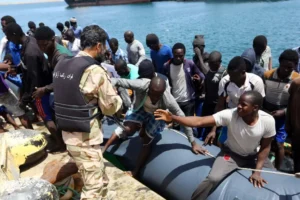Tunisia is preparing for a historic event: the local elections.
These elections, the first of their kind in Tunisia, will reshape the country’s political landscape by presenting a new form of local governance and, ultimately, a complex mosaic of democratic aspirations.
What makes this event even more remarkable is the unexpectedly large number of candidates who have thrown their hats into the ring, according to Tlili Mansri, spokesperson for the Independent High Electoral Authority (ISIE).
In fact, as of November 1, 2023, the ISIE had received more than 7,000 candidacy applications from across the country.
In addition, the electoral authority had decided to extend the deadline for submitting candidacies, originally set for 2 November, to 6 November. This extension is intended to give candidates the necessary time to complete their dossiers and to ensure that no one is left out of this landmark process.
Tunisia’s local elections are essentially the cornerstone of a wider legislative structure. They will be held in 2,155 constituencies to elect 2,434 representatives to 279 local councils. These councils will ultimately shape the National Council of Regions and Districts, setting the stage for local governance, accountability and the country’s broader political trajectory.
Each local council will elect one of its members to a regional council, resulting in 24 regional councils with 279 members. Each Regional Council will then elect one of its members to a District Council.
Five District Councils will be set up with 24 members: one representative from each Regional Council.
The National Council of Regions and Districts will therefore be composed of one member from each District Council and three members from each Regional Council. The National Council of Regions and Districts will thus have 77 members.
This new legislative body will support the role of parliament, according to Sarhan Nasri, leader of the Alliance for Tunisia party.
“It will strengthen the principle of decentralisation and help achieve regional development, which has been stalled for more than 10 years,” he said in an earlier statement, ruling out any conflict of jurisdiction between the two chambers.
Among the prerogatives of the National Council of Regions and Districts is the review of the state budget bill, as well as regional and national development plans to ensure balance between regions and districts. Article 84 of the Constitution requires an absolute majority in both chambers to approve the budget and development plans.
The local elections are also marked by the participation of candidates with disabilities. ISIE spokesperson Tlili Mansri says nearly 900 people with disabilities have registered to participate. Their presence symbolises the nation’s commitment to ensuring that democracy is an inclusive affair that represents all segments of society.
The road to these elections began on October 23, when the ISIE began accepting candidacies at 27 centres scattered across the country.
According to the electoral timetable drawn up by the ISIE, local authorities will verify the preliminary lists of accepted candidates by November 7 at the latest.
The final list of approved candidates should be announced by November 28 at the latest.
It is here, in these registration centres, that the tapestry of inclusive participation unfolds as diverse candidates, each with a unique background and history, submit their papers.
Their aspirations and motivations, ranging from addressing local issues to contributing to the larger national narrative, echo through the registration centres, creating an atmosphere of hope and change.
The first round of these elections is scheduled for December 24, a day that holds great promise for the nation. Tunisians will cast their ballots to shape their local councils and be the architects of their country’s future.
Source : Zawya











